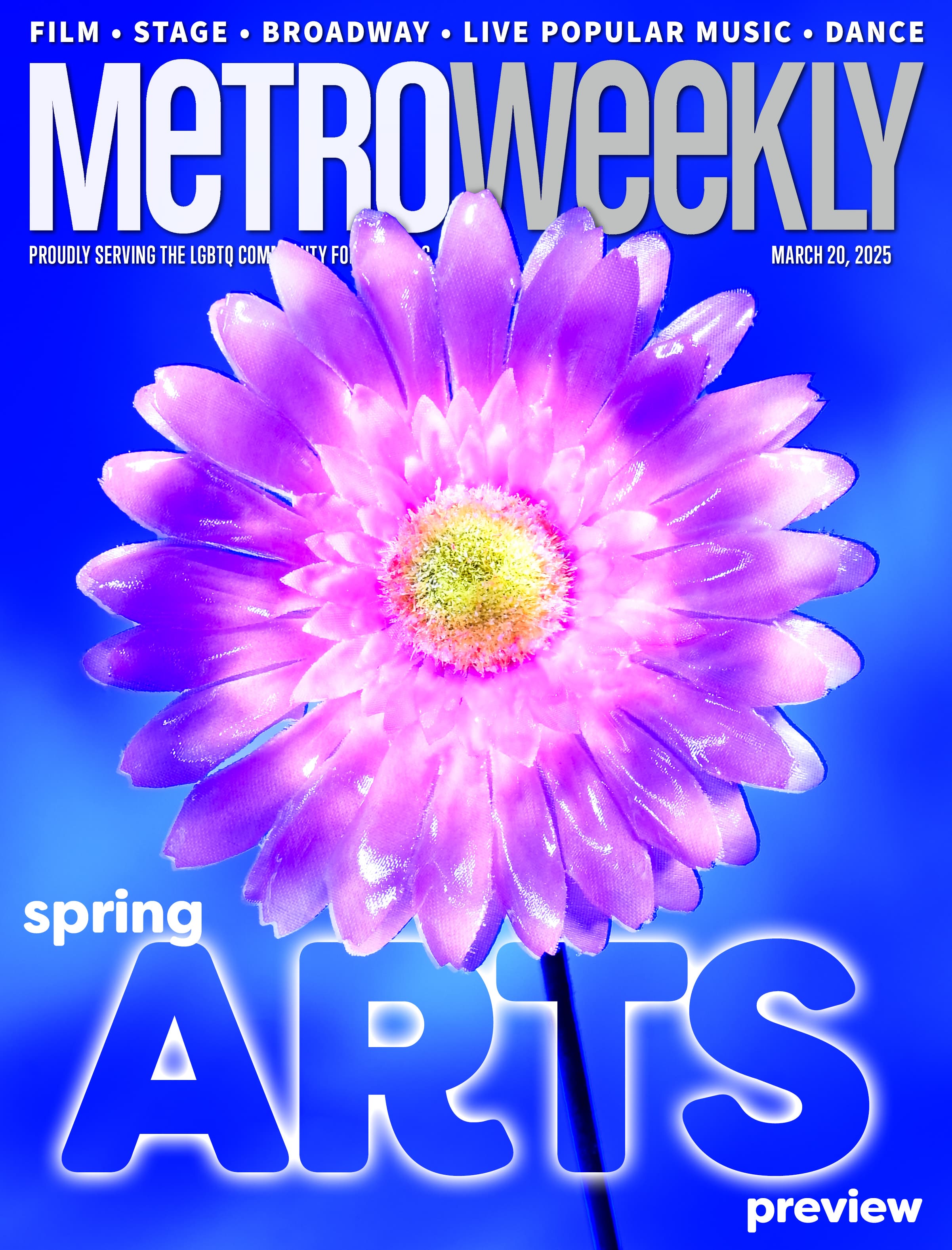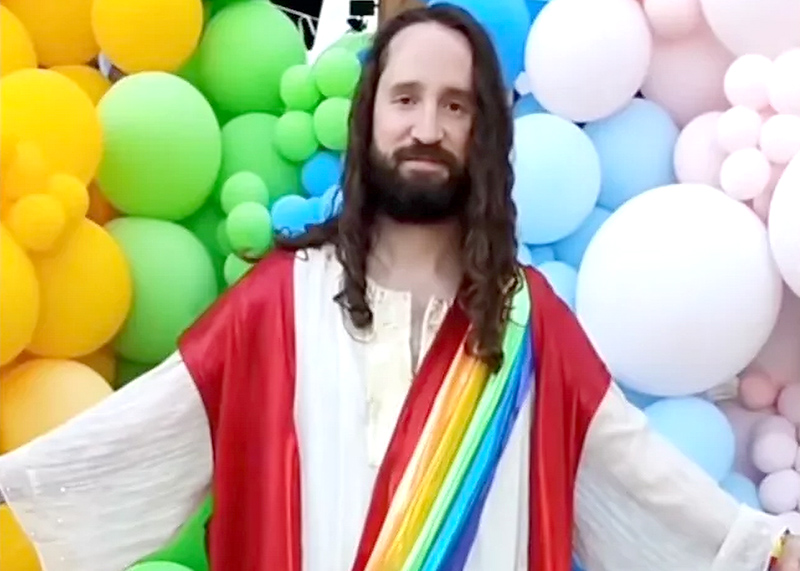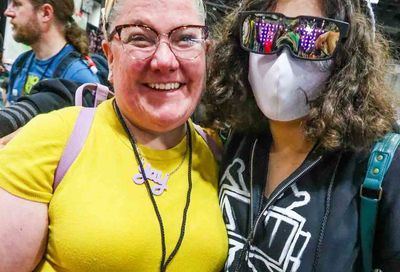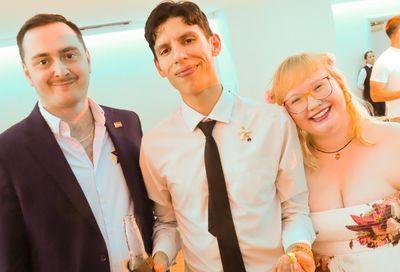Leading the Way in Equality
Local governments are often ahead of the pack when it comes to LGBT equality measures, even in more traditionally conservative states

“I think Louisville has always been an open and inclusive city, going back to its immigrant roots, when it welcomed immigrants in the 1800s,” says Chris Poynter, the communications director for Louisville Mayor Greg Fisher. “So I think it’s just part of our DNA, and we’re sort of a ‘live and let live’ community.”
According to Poynter, that attitude extends to other facets of life in Kentucky’s largest city. That’s why there was so little pushback when his boss set a goal of having Louisville achieve a perfect rating on the Human Rights Campaign’s annual Municipal Equality Index.
In previous years, the city’s rating on the index had hovered in the 60-70 range (out of 100), which wasn’t bad. But Fisher felt the need to push for more. To achieve its goal of a perfect rating, his administration consulted with the Fairness Campaign, Kentucky’s major LGBT rights group, and with representatives from HRC to map out a plan of action.
Some of the changes implemented included the appointment of a liaison to the LGBT community within the mayor’s office, a concerted effort to foster relationships between the city’s police force and the LGBT community, and requiring contractors and vendors who work with the city to have an LGBT-inclusive policy before the city does business with them.
As a result of those changes, Louisville was not only awarded a 100 percent rating from the Municipal Equality Index, but was actually profiled in the report as an example for other cities to follow. It also received designation as an “All-Star” city, which is reserved for those cities that have achieved much success in the realm of equality, despite being in a state that lacks LGBT-supportive laws.
“We worked very hard to get that 100 percent rating, because we wanted to send a message to the nation and to the world that Louisville is open, welcoming, inclusive, and that we value all people here,” says Poynter. “Sometimes there are stereotypes associated with being from Kentucky. But Louisville’s a very different city…. Louisville welcomes LGBTQ citizens and wants LGBTQ visitors, and one of the ways to do that was to get 100 on the HRC’s scorecard.”
Indeed, Louisville has not been shy about embracing its role as the liberal bastion within Kentucky, particularly when it comes to LGBT equality. Following the Supreme Court’s ruling legalizing marriage equality earlier this summer, the city’s Convention & Visitors Bureau launched a nationwide campaign, “Say I Do in Lou,” promising to pay for the full costs of the wedding of one lucky LGBT couple. The winning couple, from Fort Wayne, Ind., was married on Sept. 19, concurrent with the city’s inaugural Pride Festival. Several local businesses donated their goods and services to help carry out the wedding.
While not all cities or local municipalities have gone as far as Louisville in covering the tab for a wedding, most of the country’s major metropolitan areas have succeeded where state legislatures and the federal government have failed, at least when it comes to LGBT equality measures. Topping the list of “All-Star” cities with perfect 100 scores are places that are not widely known or perceived as being LGBT-friendly, including the cities of Phoenix, Tempe, and Tucson in Arizona; Missoula, Montana; St. Petersburg in Florida; East Lansing and Detroit in Michigan; Cincinnati and Columbus in Ohio.
Like Louisville, Columbus, which boasts a large LGBT population, was encouraged by its former executive, Mayor Michael Coleman, to make the city LGBT-friendly and welcoming, says Napoleon Bell II, executive director of the Columbus Community Relations Commission. One of the crucial building blocks to achieving that status was the passage of a citywide nondiscrimination law with protections for sexual orientation, gender identity and gender expression, which Bell is now tasked with helping to enforce.
Bell says the city has collaborated with LGBT advocates on a number of issues to seek input on policy, the police department has a liaison to the LGBT community to help address concerns, and the city provides substantial LGBT-comprehensive health care benefits to its employees.
“I think all of these things contribute to the fact that we are a welcoming city, and embrace our LGBT community,” Bell says. “Putting these things in place is a way of showing our commitment.”
Of course, some municipalities are limited in what they are able to do, particularly in states like Virginia, where municipalities are bound by what is known as Dillon’s Rule. Under Dillon’s Rule, a great amount of deference is given to the state legislature, rather than local governments. As such, local municipalities are not allowed to pass measures, such as an LGBT nondiscrimination law, unless the state legislature has defined sexual orientation and gender identity as a protected class in statute.
Jean Kelleher, director of the Alexandria Office of Human Rights in Alexandria, Va., says that her city’s score on the Municipal Equality Index went down after the legalization of marriage equality, because all cities were no longer awarded bonus points for recognizing same-sex relationships. This year, the city was awarded an 87.
“Without bonus points, I don’t think any any municipality in Virginia can receive a perfect score,” she says. “Our Human Rights Act is very weak.”
Kelleher notes that because of Dillon’s Rule the city’s addition of sexual orientation to its human rights ordinance in 1988 could still be challenged in court almost thirty years later. But she also says that a ruling by the Equal Employment Opportunity Commission (EEOC) in the case of Macy v. Holder, which found that anti-transgender discrimination constituted sex discrimination, has allowed her office to pursue anti-LGBT discrimination by filing charges based on gender discrimination. In doing this, the office can still carry out its duties without violating Dillon’s Rule.
“I think the city government, I think all of us, certainly try to do what we think is the right thing, but always following the law, so we are constrained by whatever the law happens to be,” she says. “But when it comes to policy or benefits for our employees, I think we always try to do what we collectively would think is the right thing.”
Libby Garvey, the Chair of the Arlington County Board, in neighboring Arlington, Va., notes that her municipality has always tried to ensure that LGBT residents are treated fairly, even offering county employees domestic partner benefits in the 1990s, only to see a state judge overturn the policy. (That issue has since been resolved due to the legalization of marriage equality.) Still, Garvey says, the mantra in Arlington has always been one of tolerance.
“We are a welcoming community and protect everybody,” she says. “We’ve been doing this for so long that it’s just part of the culture…. We have diversity in a lot of ways. But I think when it comes to the culture of our community, we tend to be a lot more similar…. And we’re small, which enables that culture to permeate pretty much everywhere in the county.”
That tolerance displays itself in the variety of services and programs made available to the county’s LGBT residents, the carefully-forged working relationship between the community and the police, and even at the school level, where Arlington has implemented comprehensive anti-bullying and harassment policies — the school board also recently passed pro-LGBT nondiscrimination policy.
“We’re always marketing Arlington as a wonderful place to live, and we’ve always marketed the fact that we are welcoming and diverse,” says Garvey. “We really view diversity as a strength here. And we always appreciate and want talent…. Anybody who would come here I think would feel very welcome and decide, ‘This is the place I’d like to live.'”
Support Metro Weekly’s Journalism
These are challenging times for news organizations. And yet it’s crucial we stay active and provide vital resources and information to both our local readers and the world. So won’t you please take a moment and consider supporting Metro Weekly with a membership? For as little as $5 a month, you can help ensure Metro Weekly magazine and MetroWeekly.com remain free, viable resources as we provide the best, most diverse, culturally-resonant LGBTQ coverage in both the D.C. region and around the world. Memberships come with exclusive perks and discounts, your own personal digital delivery of each week’s magazine (and an archive), access to our Member's Lounge when it launches this fall, and exclusive members-only items like Metro Weekly Membership Mugs and Tote Bags! Check out all our membership levels here and please join us today!
























You must be logged in to post a comment.